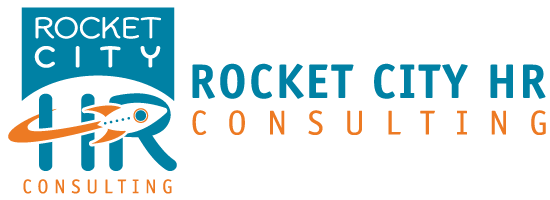If you pay attention to current business articles and seminars, you have probably heard that Human Resources (HR) and leadership should be taking extra care of the organization’s employees right now as stress and anxiety are on the rise. While that is true, we tend to forget some very important personnel in this effort. HR staff members are also employees, and not only do they face the same stress and anxiety that the rest of the employees face, but they are also tasked with drafting and enacting new policies that keep changing to fit the current environment; guiding leadership on next steps for business continuity while balancing employee morale; addressing concerns from leadership and other employees on new policies and procedures; carrying out the hard decisions, such as furloughs, layoffs and salary reductions; and navigating newly enacted laws and regulations. Meanwhile, none of their regular day-to-day responsibilities have been reduced, and instead of extra support, HR teams often feel excluded from the same support and self-care that the HR team promotes for the rest of the organization.
Let’s be honest, excluding the HR Department is not new. The HR Department exists in a paradox of being perceived as the enemy, no matter which side you are sitting on. For the leadership team, HR is often seen as the naysayer: the one who always says “no” to new ideas because of “employment laws” and “compliance.” Meanwhile, from the employee side, HR is seen as the tattletale waiting for an employee to accidentally reveal something so that they can report it to leadership. As such, the HR Department is often excluded from the very benefits that they have worked to prepare and coordinate for the rest of the employees so that the employees feel comfortable. For example, one HR Department reported, “When we brought in a mental health expert, HR had to excuse ourselves so the [employees] would feel comfortable; we couldn’t take advantage of the service ourselves.” Additionally, the HR professional is also often seen as “the strong one” who somehow handles the stress and doesn’t need help. But, this just is not true. I can almost guarantee you that every FMLA case, every ADA accommodation, every disciplinary meeting, and every separation is affecting your HR team, and if they aren’t, your HR Team may be facing compassion fatigue, which happens when you don’t help your HR team to prioritize taking care of themselves.
There are many ways that you can support your HR staff. First, encourage them to practice self-care. Self-care is a broad category, but some examples are taking breaks, exercising, or participating in stress-reducing activities, such as reading or meditation. Your HR team may also be refreshed by working on a passion project, designating clear boundaries between work and home to get real “downtime,” or taking some much-needed time off. Even encouraging your HR staff to participate in conferences can help, as it provides a space for your HR personnel to feel understood. Don’t be surprised, though, if, after you suggest taking some time for self-care, your HR person laughs. Conveniently, this brings us to the second method of supporting your HR team, recognizing that they need help.
As mentioned previously, HR teams are suddenly facing many new responsibilities to support your business due to the ever-changing environment and related policies. However, as important as it is to draft a new policy to support working from home or to support the most recent FFCRA opinion revision from the Department of Labor, the fact is that your HR team’s regular responsibilities, such as employee status changes, Workers’ Compensation claims, FMLA administration, ADA accommodations, recruiting, benefits, compliance strategy, training, discipline, etc. have not been reduced, nor can they be. And since these responsibilities accounted for their regular, most likely full-time, schedule before there was a pandemic crisis, you can certainly understand why your HR Representative laughed when you suggested a little self-care and time off.
So, what can you do? You can’t stop your upcoming open enrollment from happening, nor can you stop the myriad events needing HR attention. However, you can recognize that your HR team needs help. Unfortunately, delegating tasks to other employees outside of the HR Department is not the best option as HR must work with a lot of confidential information that cannot be entrusted to employees outside of HR. However, a great option is to engage the services of a consulting company that is contractually obligated to keep your confidential information confidential. Consulting companies can help with collaboration on HR strategies for your business’s success or can support your HR team’s day-to-day activities such as onboarding or recruiting. Better yet, consulting companies are not a continuing fixed expense. You can contract with a consulting company for a set number of hours to support your HR team on a short-term project, such as open enrollment or an HR handbook policy revision and relieve some of the overwhelming pressure your HR team is currently facing.
In the end, your HR team is a key component to your organization and is the bridge between your employees’ needs and your business’s success. You need them to be effective, which they will not be if they are burnt out from succumbing to the same stress and anxiety that they are currently trying to help the rest of your employees navigate. Support your HR team by both reminding them that self-care is important for them as well and providing some extra outside support to help reduce that ever-growing task list. HR team members are employees, too, and right now, they need our support.
Don’t forget to recognize your HR team for all the hard work they do. Take them out to lunch, send them flowers, or just say, “Thank You.” This has been an unpredictable year with a lot of uncertainty, and HR has been in the middle of most of it. Remember that your HR team has been pivoting and adjusting constantly since March. Take a moment to recognize them for all they do.







